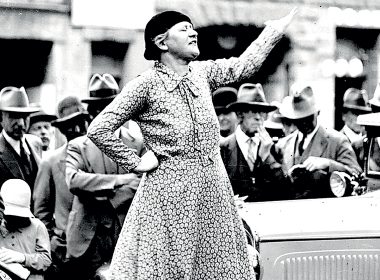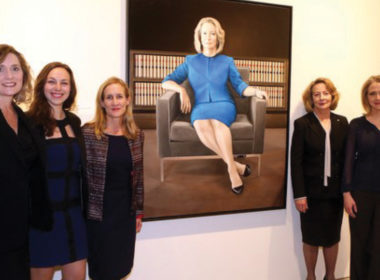The Law Society’s Charter for the Advancement of Women now applies to thousands of lawyers across Australia, after it was adopted by the Law Institute of Victoria (LIV) and the Law Society of Western Australia last month.
The Charter, which has been championed by the Law Society’s Diversity and Inclusion Committee, was first developed in 2016 and relaunched earlier this year. Signatories to the Charter commit to showing leadership on gender equality in the workplace, encouraging flexible working and addressing sexual harassment within the profession. The revamped Charter has more detailed guidelines, which provide examples of practices designed to help legal workplaces fulfil their Charter commitments.
In NSW alone, more than 310 legal practices have committed to the Charter. Signatories range from big law firms including Allens, Herbert Smith Freehills, Clayton Utz, Gilbert + Tobin and MinterEllison, government organisations including the Crown Solicitor’s Office and several departments, in-house legal teams such as HP, Telstra and Salesforce, community legal centres and sole practitioners. Given the scale and scope of adoption, it is estimated that the Charter now covers more than half of the state’s 37,877 solicitors.
The LIV announced in September it had launched the Charter for signatories from within the Victorian justice sector, while the Law Society of WA has adopted the Charter with slight modifications to reflect the Western Australian legal landscape.
“It is fantastic to see our colleagues in Western Australia and Victoria unite with us in our commitment to diversity, equality and inclusion within the legal profession,” said Ronan MacSweeney, Deputy General Counsel at Transport for NSW and chair of the Law Society’s Diversity and Inclusion Committee.
“Signing the Charter demonstrates a commitment to practical action to a better profession, a profession where everyone is treated equitably and with respect.
“Events over the past year have demonstrated the increasing urgency for positive change, within the legal profession and society as a whole. The Committee is proud to lead the Law Society’s efforts in advancing diversity and inclusion.”
The Law Society’s latest statistics show that women now make up a majority – 53 per cent – of the legal profession in New South Wales. Among younger members of the profession, those under 30, women make up almost two-thirds of the cohort. But men are still disproportionately represented in senior leadership positions, holding twice as many law practice principal practising certificate as women. It is estimated that there is a 23.8 per cent full-time gender pay gap in the law in Australia. The legal profession also fails to reflect the society it represents in terms of ethnicity and background, disability and LGBTQI+ diversity.
“Better reflecting the diversity we see in society is key to ensuring our communities have trust in the legal profession,” said committee member Danielle Kelly, Global Head of Diversity and Inclusion at Herbert Smith Freehills.
“While we have seen considerable progress in diversity and inclusion in the past decade, there is still much work to do. The Charter and accompanying guidelines give legal practices in Australia, of all shapes and sizes, the tools for taking practical action.”




